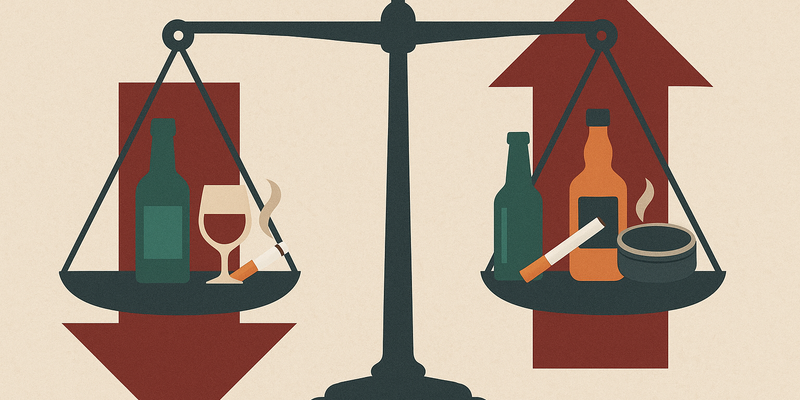Do Increased Taxes on Tobacco and Alcohol Truly Have No Effect? Unexpected Outcomes in India
I was truly surprised when I heard this news! 😮 India raised taxes to reduce alcohol and tobacco consumption, and it's hard to believe household spending actually increased. Let's find out why the results differ from other countries!

Hello everyone! Today, I came across some very interesting news articles that got me thinking a lot. It's about why the 'tax increase on addiction' works in other countries, but yields different results than expected in India. I became quite interested after seeing this news. 🧐
India's 'Sin-Tax' Experiment: What are the Results?
Found this article helpful?
Never miss insights like this - delivered every morning
It is generally known that increasing taxes on commodities like alcohol and tobacco is effective in reducing consumption. This is also referred to as 'Sin-Tax.' India has also followed this conventional method. Despite price increases on alcohol and tobacco over the past decade, surprisingly, the latest consumption-expenditure data shows that Indian households are actually spending more money on these products.
Looking at the specific figures, compared to 2011-12, the monthly per capita expenditure on tobacco and alcohol in rural India has reached 143 Indian Rupees (INR), accounting for 3.79% of the budget. In urban areas, it stands at 157 INR, making up 2.43% of the budget. 😳 To put this into perspective, shockingly, Indians are now spending more money on addictive products than on education on average per person. Spending more on alcohol and tobacco than on education is a very serious issue. 😥
Why Did India See Different Results?
So, why is it that the same tax policy is effective in countries like Australia or the Philippines, but not in India? The article analyzes the reasons as a few factors: loopholes, substitution, and a vast informal market. The motivation of each state government to increase revenue further complicates the situation.
Success Stories from Other Countries?
How did countries like Australia achieve effectiveness? Australia not only increased taxes but also implemented regular tax hikes, plain packaging regulations for cigarette packs, and strict enforcement. As a result, the adult smoking rate (14 years and older) recorded an all-time low of 8.3% as of 2022-23, with many citing 'too expensive' as the reason. 🇦🇺 The Philippines also significantly increased taxes on tobacco, leading to a reduction in smoking rates. 🇵🇭 The secret to these countries' success lies not just in raising prices, but in meticulous policy design, thorough enforcement, and the creation of a virtuous cycle where the secured tax revenue is reinvested in improving public health.
What's Next for India's Policy?
In India's case, the fact that consumption did not decrease and spending actually increased despite tax hikes likely suggests that consumers are finding cheaper alternatives or that consumption has shifted to the informal market where taxes are not applied. Alternatively, it's possible that consumption habits for highly addictive products are so deeply ingrained that price increases alone are insufficient for control.
These results offer significant implications for policymakers. Simply increasing taxes is not enough; it demonstrates the need for a multifaceted approach that thoroughly understands people's consumption patterns, market structures, and policy loopholes. If policies intended for public health are instead burdening household economies, it is a time that calls for deep consideration of fundamental solutions. 🤔
What are your thoughts on this news? What aspects of tax policies on addictive products need further improvement? Please leave your opinions in the comments! 👇
Thank you for reading this long article today. I will be back with more informative and interesting stories! 😊